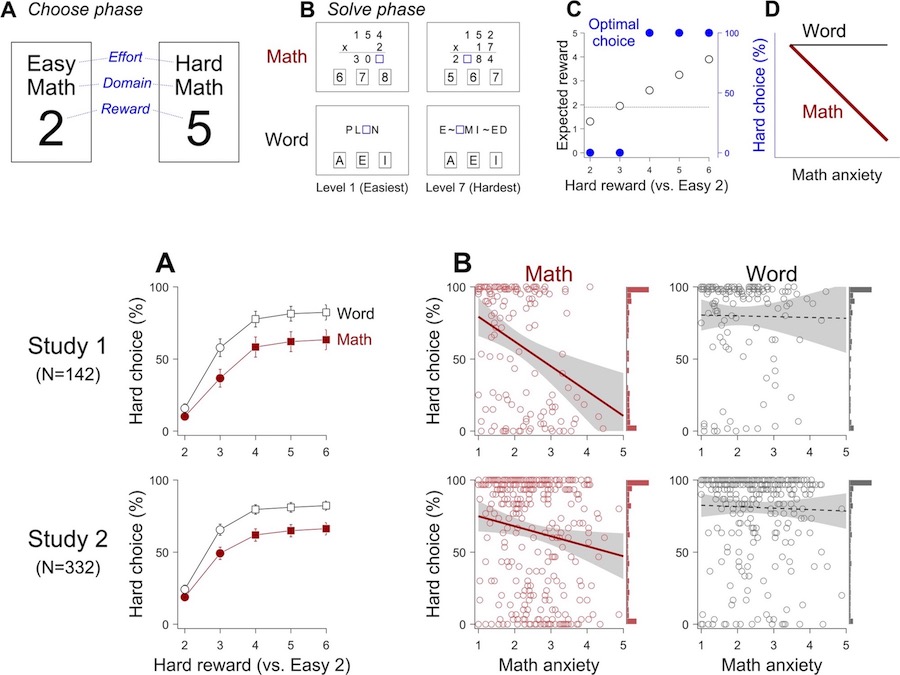This GitHub repository contains the effort-based decision-making task of the paper, titled "Calculated Avoidance: Math Anxiety Predicts Math Avoidance in Effort-Based Decision-Making" by Choe KW, Jenifer JB, Rozek CS, Berman MG, & Beilock SL (2019). The paper was published in Science Advances and is freely available at https://advances.sciencemag.org/content/5/11/eaay1062. For the details of the Choose-And-Solve Task (CAST), please see our paper.
You can try the CAST at https://kywch.github.io/CAST_jsPsych/choose-and-solve-task.html or by downloading this repository, unzipping it, and double-clicking the choose-and-solve-task.html file on your computer.
You can embed the CAST in your Qualtrics survey by following this tutorial: https://kywch.github.io/jsPsych-in-Qualtrics/choose-and-solve/.
The 3-alternative 1,999 math and 1,858 word problems used in the CAST are freely available at https://github.com/kywch/CAST_jsPsych/tree/master/problem-set.
The CAST is implemented using javascript and the jsPsych library. Some codes came from the Experiment Factory.
Abstract
Math anxiety—negative feelings toward math—is hypothesized to be associated with the avoidance of math-related activities such as taking math courses and pursuing STEM careers. However, there is little experimental evidence for the math anxiety-avoidance link. Such evidence is important for formulating how to break this relationship. We hypothesize that math avoidance emerges when one perceives the costs of effortful math engagement to outweigh its benefits and that this perception depends on individual differences in math anxiety. To test this hypothesis, we developed an effort-based decision-making task in which participants chose between solving easy, low-reward problems and hard, high-reward problems in both math and nonmath contexts. Higher levels of math anxiety were associated with a tendency to select easier, low-reward problems over harder, high-reward math (but not word) problems. Addressing this robust math anxiety-avoidance link has the potential to increase interest and success in STEM fields.
The CAST is developed and maintained by Kyoung Whan Choe.
